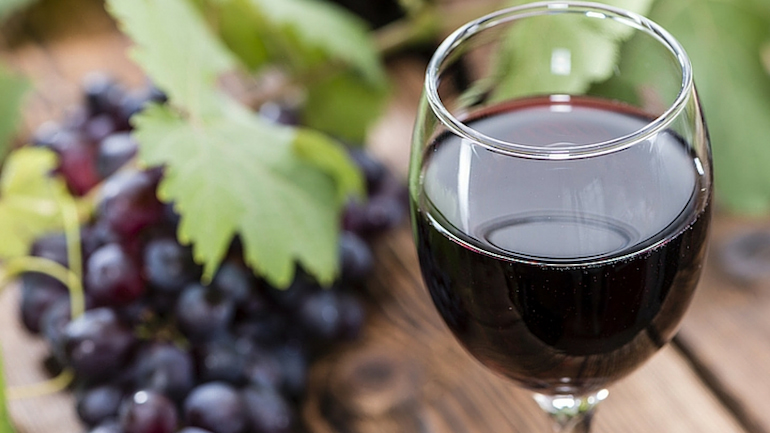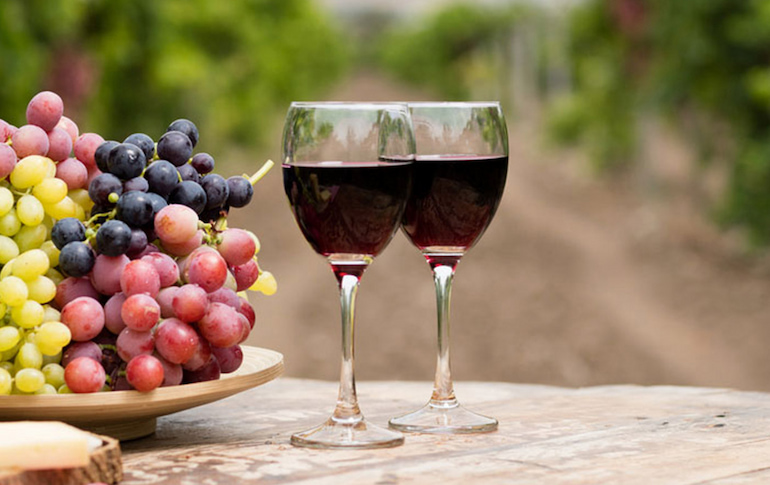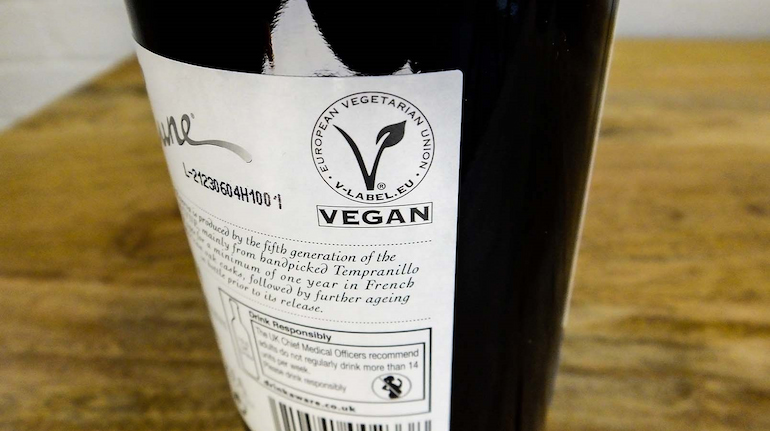If you’ve ever wondered whether vegetarians drink wine, you’ll be relieved to learn that the response is a resounding yes! But, before heading to someone vegan for dinner and picking up a bottle of Merlot wine in the nearby store, be aware that not all of them are made without the use of animal products.
What Is a Plant-Based Wine?

Vegan or not, those who tried fell in love at first sip with a fine organic vegan red wine. But what is the difference between a vegan one and the so-called normal version?
Many wineries fine their product before bottling it, which is a clarification procedure that removes particles like proteins and tannins from the liquor and makes it clearer and less astringent. This is where animal products step in.
While some winemakers use isinglass to filter the finished product, others use egg whites, casein which is a milk protein, or chitosan-a substance derived from shrimp shells. However, it can also originate from a fungus called Aspergillus niger or green phytoplankton. Thankfully, the practice of using oxblood was once more prevalent than it is today.
So, if you’ve ever drank wine that wasn’t labelled “vegan,” you haven’t accidentally consumed an animal product because the fining agents are eliminated before it’s is bottled. However, because these leftovers were used in the procedure, wine filtered in this manner is still not regarded as vegan. And wineries aren’t obliged to disclose their use on their label.
Fortunately, as veganism rises in popularity and more and more people become aware of the importance of using plant-based products, vegan red wines—those without animal products in the filtering process—are becoming more popular.
Some vineyards take a more hands-off approach and omit the last stage of filtration. Some people consciously decide to use alternatives that don’t contain any animal products, like ceramic filtration and bentonite clay. As a result, a growing number of companies are labelling their wines as “vegan” on the bottle.
Are Organic Wines Vegan?
Although it’s a prevalent misconception, not all products labelled as “organic,” “sustainable,” or “biodynamic” are vegan. Instead of the winemaking process itself, these words refer to the farming practices used at a vineyard, such as whether chemicals are used and how the soil is managed.
Although vegan wines made from organic, sustainable, and biodynamic grapes are possible, not all will be since some may still use animal products during the fining process. In terms of taste, aside from the typical elements related to grape variety, ageing, and other variables, there is no taste difference between organic vegan red wine and the traditional variety.
Organic, Biodynamic, or Clean Wines- What’s the Difference?

Wines that are pure, biodynamic, and organic are not always vegan. The organic version is produced from grapes cultivated without the use of artificial fertilizers or pesticides and is sulphite-free, but the finishing process may involve animal products.
Neither additional additives nor the yeast used to speed up the fermentation process is present in biodynamic wine. However, the vineyard is where the majority of the “biodynamic” portion of the label occurs. Every step of the biodynamic farming process feeds into the next, taking a holistic approach to agriculture. Many of these practices are also regenerative, meaning they help the soil regenerate over time.
Farm animals reside on the land to fertilize it, and biodynamic fields avoid using chemical pesticides and fertilizers to maintain healthy soil. The use of bovine horn manure is another method.
To do this, bovine horns are filled with manure and placed underground over the winter. Later, it is dug up, and the compost is then dispersed across the property. This process is thought to be essential in biodynamic farming because the horns are from a lactating bovine. Biodynamic wine isn’t regarded as vegan as a result.
On the other hand, with no added sugar, sulphites, or preservatives, clean or “natural” red wines are usually produced from grapes cultivated without the use of synthetic pesticides. Many are produced from sustainably harvested grapes, vegan, and organic.
But bear in mind that, in contrast to “organic,” the word “clean” is not governed by law. It’s a marketing phrase that conveys a false sense of health. For instance, some clean labels might assert that because there are no sulphites present, you won’t get a wine headache. However, it is generally acknowledged that sulphites found in the beverage do not result in headaches.
This should not deter you from consuming clean wine though. Many companies produce delicious types that are entirely vegan. The bottom line is that you should be educated when making choices as a consumer, from understanding the terminology used in marketing to learning about hidden animal products. Even if it is marketed as “clean,” booze still contains alcohol and should only be consumed in moderation.
How to Tell Which Wines Are Vegan?

Unbeknownst to you, many of your favourite red wines may be vegan. However, since winemakers are not required to disclose any ingredients or production methods on their bottles, aside from possible allergens, it can be difficult to tell which wines are vegan.
Some companies, particularly those that target a younger, trendier audience, may use a wine’s vegan status as a differentiator and prominently state it on the label. Meanwhile, supermarkets frequently feature their own-brand vegan-friendly red wine in a designated area of the drink’s aisle.
Additionally, since they haven’t been in touch with any animal-based fining agents, those that are marked as “unfined” or “unfiltered” are also suitable for vegans. Otherwise, you should visit the webpage of the winemaker. Many are providing transparent manufacturing processes and ingredient information for their wines in response to the increasing interest in diet and well-being.

